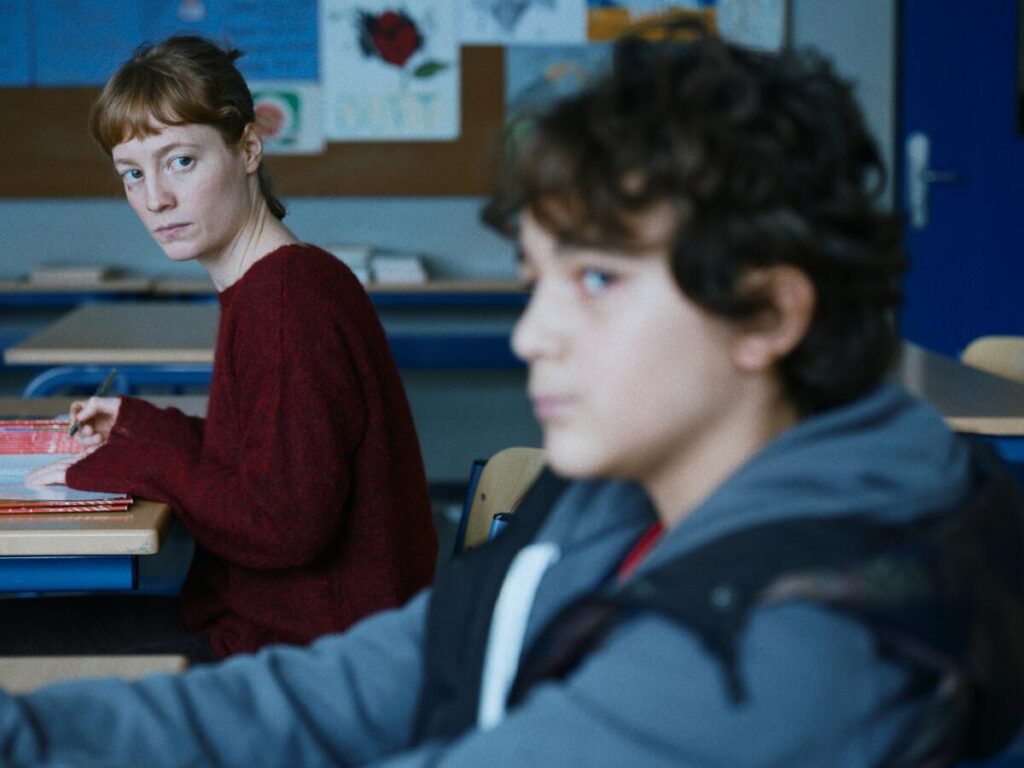Since debuting at the 2023 Berlin International Film Festival, İlker Çatak’s “The Teachers’ Lounge” has earned rave reviews and won over moviegoers across the world. There is one audience, however, from which the film has spurred a disproportionally passionate reaction: educators.
For Leonie Benesch, who plays the teacher at the center of an increasingly tense school controversy, that meant a screening tour across Germany transformed into something of a surreal experience.
“Usually, out of everyone in the audience, it’d be around a good 20% to 25% teachers,” Benesch says. “And they would get up and be teachers. So they lecture people on what they thought, or ‘That’s not how it works at our school,’ or ‘This is exactly what happened to me,’ and then another teacher would get up and they would have it out.”
She adds, “And quite a few people were a bit angry with us for portraying the reality of how stressful it was, and it’s like, ‘No one’s going to be wanting to help us out anymore.’ And we’re like, ‘Well, we did not try to make an advertisement. It’s a fictional story.’”
Set in a contemporary German secondary school, “Teachers’ Lounge” finds Carla Nowak (Benesch) being tasked in her first teaching assignment to inspire a class of what Americans would consider seventh graders (among the toughest grades to teach). When other teachers begin to complain about having valuable items stolen in their lounge, she devises a trap. She leaves her wallet in her jacket and sets up her laptop camera to record after she walks out of the room. She returns to find her money missing and potential video evidence implicating another school employee. When this adult is revealed to be the parent of one of Carla’s students, it sets off a dramatic chain of events.
The film’s director and co-writer, Çatak, collaborated on the screenplay with an old childhood friend, Johannes Duncker. They were inspired by a similar incident that happened to them at around the same age as the students in the movie, an incident that saw his classmates frisked and his teachers demand they hand over their wallets for inspection.
Leonie Benesch as Carla Nowak, Leo Stettnisch as Oskar in “The Teachers’ Lounge.”
(Judith Kaufmann / Sony Pictures Classics)
“Twenty-something years later, we said, ‘Why didn’t any of us question that kind of behavior of the teachers? It wasn’t cool.’ But nobody did,” Çatak notes. “And then he told me about this one story of his sister, who’s a math teacher in Germany, and they also had a stealing thing going on in school. And we immediately knew that when you make a film about school, you also make a film about society. And we thought this could be an interesting endeavor.”
To give the film authenticity, Çatak recruited nonprofessional actors to play students in the film but knew that their teacher, Carla, needed to avoid the narrative tropes of the “worn out” educator. She may make mistakes, but it is her first job; why not make her a cool teacher?
“I actually had two or three very good teachers, and they inspired” the character, Çatak, says. “They were older, though, and we thought it’s good that she’s young, because the younger they are, the more idealistic they are. And after 20-something years in the job, of course, you start getting more relaxed, and not everything is taken so seriously. And that’s why we thought it’s good if you’re just turning maybe 30, end of her 20s and just starting out the job, being very idealistic — also kind of naive about the kids and underestimating them a little, maybe not knowing how devilish they can be.”
The film’s first-time teen actors have plenty of screen time, with one scene being much improved through their natural reactions, Çatak says. And he found their willingness to make the film better endearing.
He recalls, “I was standing on set and thinking, ‘Oh, this doesn’t make a good scene right now. I have to come up with something else.’ And then I turned to the kids and said, ‘Guys, I need your help, because I think what we wrote, it’s just not working for me.’ And it was just very moving how every kid was like, ‘OK, how can we help? How can we make something happen here?’ And then we kind of improvised.”
Best known for her roles in Michael Haneke’s “The White Ribbon” and Tom Tykwer’s television series “Babylon Berlin,” Benesch had her own instructor who made a profound impact on her life. She didn’t realize how good that French teacher was, though, until she lost her.
“She was terrifying. We all called her the dragon,” Benesch says. “But then, for the last two years [I was there], she stopped teaching at the school, and we had a really bad French teacher come in. And I eventually stopped going to those classes and paid [the original instructor] privately to teach me, because I wanted to do French lessons with her. I had an A+ in my A-levels in French because of her.
“But the thing is, she heard about the premiere at Berlinale and got in touch with me. And I invited her to the screening. She came up to me afterward and said, ‘It is true. You are very alone [as a teacher], and nobody helps you, but it is very rewarding.’ ”

